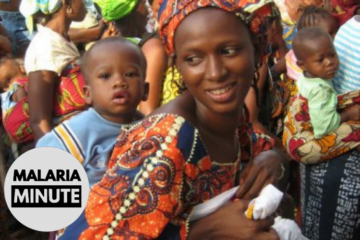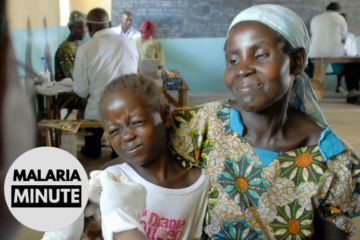The Latest Malaria News, in 60 Seconds.
Malaria antibodies in pregnant women may be a marker of exposure, not protection, from malaria and a combination of antimalarial drugs is less efficacious than if used in tandem.
Malaria Minute on iTunes and Spotify
Transcript:
Pregnant women are highly susceptible to malaria and over multiple pregnancies, develop some protection against the disease. It was thought that this was due to the development of antibodies against VAR2CSA, an antigen which is responsible for pregnancy-specific P. falciparum malaria. A new study in BMC Medical has explored this hypothesis in a systematic review of pregnancy data. Researchers found that antibody responses increase with malaria infection, but could not identify any specific antibody responses that led to malaria protection. This suggests that the presence of malaria antibodies may be a marker of exposure, rather than protection from, pregnancy-specific malaria.
And what happens on a molecular level when two antimalarial compounds combine has yielded surprising results about the process of crystallisation. It was thought that the two compounds would have a combined effect greater than the sum of their parts but, in actual fact, the two drugs worked against each other.
Sources:
Pregnancy-Specific Malarial Immunity and Risk of Malaria in Pregnancy and Adverse Birth Outcomes
Antagonistic Cooperativity Between Crystal Growth Modifiers
Image Credits: US President’s Malaria Initiative [Flickr]
Scientific Advisor: Katharine Collins, Radboud University Medical Centre


